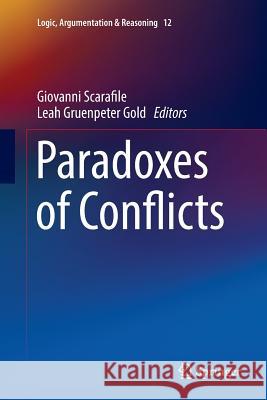Paradoxes of Conflicts » książka
topmenu
Paradoxes of Conflicts
ISBN-13: 9783319824710 / Angielski / Miękka / 2018 / 218 str.
Kategorie BISAC:
Wydawca:
Springer
Seria wydawnicza:
Język:
Angielski
ISBN-13:
9783319824710
Rok wydania:
2018
Wydanie:
Softcover Repri
Ilość stron:
218
Waga:
0.33 kg
Wymiary:
23.39 x 15.6 x 1.24
Oprawa:
Miękka
Wolumenów:
01
Dodatkowe informacje:
Wydanie ilustrowane











